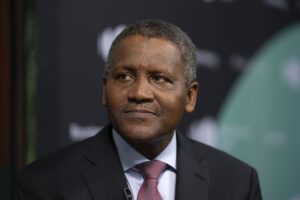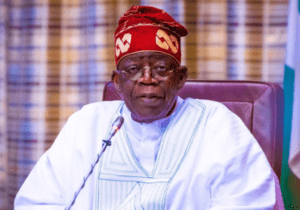The Ninth Assembly and Lawan’s unbroken pact with Nigerians
By Dr. Ezrel Tabiowo
As one of Nigeria’s longest serving legislators, Senator Ahmad Lawan, can be regarded as one of the most experienced lawmakers when it comes to the workings and trappings of lawmaking.
The knowledge amassed from his time in the House of Representatives to the Senate afforded him the edge in coming through with a clearly defined action plan, which, was the heart of his campaign when he contested the Senate Presidency for a second time in 2019.
His legislative agenda, tagged, “A National Assembly That Works For Nigeria,” was a pact with Nigerians conceived to address critical aspects of our national life ranging from Security, Economy, Criminal Legislation Reform to Public Finance Management.
Other important areas of focus accommodated are Youth Unemployment and Substance Abuse, Standard of Education, Healthcare Services, Social Safety Net, and Constitutional Amendments.
However, he understood that having a flawed budgetary practice to a very large extent could frustrate the realisation of his legislative agenda which sought a better deal for Nigerians.
Solving The Budgeting Puzzle
As a lawmaker not new to the complexities of bureaucratic intrigues, Lawan figured that the budget, besides being a financial action plan, was the key to the successful implementation of government strategies, policies, plans and priorities.
Having missed out on his previous bid to lead the National Assembly in 2015, he was not unaware of the very obvious that he had only just four years to make up for the setback suffered by the President Muhammadu Buhari administration, owing to the frosty relationship between the legislature and executive at the time.
The absence of executive-legislature harmony, as a consequence, made it absolutely impossible for the ruling All Progressives Congress (APC) to realise its plans for Nigerians during the first four years in power from 2015 to 2019.
In addition, the consistent delay in the passage of the nation’s annual budget in record time also had its attendant negative impact on the economy. Facts from a report by the Center For The Study Of The Economies Of Africa (CSEA) showed an inverse relationship between budget delays and economic growth in Nigeria between 2000 – 2017. The data used by the Centre for its studies and analysis were obtained from the National Bureau of Statistics (NBS).
The Centre, while underscoring the place of the budget in national development, described it as the “main transmission mechanism of fiscal policy and the key tool through which government could stabilise and influence the economic direction” of a country.
The report, titled, “The Economic Effect Of Budget Delay In Nigeria,” interestingly, attributed delay in the budgeting process to disagreement between the legislature and executive on expenditure items. It observed that such delays came with costs and outcomes capable of depressing the economy by 2.5 percent as well as the nation’s Gross Domestic Product (GDP) figures.
The report, further noted that uncertainty in government policy direction amplified economic cost due to budget delay. This, it stressed, stalled and constrained infrastructural development – a key enabler for economic growth.
Armed with knowledge of these, Lawan, after emerging as Senate President in June 2019, devised a strategy which sought to eliminate the main cause of budget delay. He adopted a leadership approach that encouraged collaboration between the executive and legislature.
His unpopular masterstroke, ruptured all bureaucratic tendencies and uprooted associated obstacles, which, hitherto, frustrated the timely consideration and passage of the nation’s annual budget and some critical bills. It also restored the budget calendar to the Gregorian January – December timeline to foster proper planning and implementation.
The Senate President’s effort, which economists have come to consider as one of his greatest accomplishments besides the passage of landmark bills, restored stability and predictability to the public budget after being deformed for twenty years under past administrations, and since Nigeria’s return to democratic governance in 1999.
The timely passage of the budget ensured an improvement to the implementation figures of capital projects across the country. This explains why the President Muhammadu Buhari-led government trumps previous administrations when it comes to infrastructural development.
In the past, the highest budget implementation figures recorded were between 50-55 percent by Ministries, Departments and Agencies of Government. In most cases, MDAs recorded very poor implementation figures, some of which went as low as 30 to 40 percent between 2011 and 2018.
For instance, in 2012, the House of Representatives under the leadership of Hon. Aminu Tambuwal, threatened to impeach the then President, Dr. Goodluck Jonathan, over the very poor implementation of the nation’s budget. The decision to commence impeachment proceedings against President Jonathan was against the backdrop of resolutions reached by the House, following a motion moved by Hon. Albert Sam-Tsokwa and 20 other lawmakers.
During debate on the motion, the various Committee Chairmen tackled the executive arm of government for failing to implement the 2012 budget as passed under the guise that the country was “broke.” The then Finance Minister, Dr. Ngozi Okonjo-Iweala, who currently is the Director General of the World Trade Organization (WTO), came under severe fire over the federal government’s inability to give sufficient explanation as to why MDAs were unable to fully implement capital projects contained in their respective budgets.
The current Speaker, Hon. Femi Gbajabiamila, who was a member elected on the platform of the Action Congress of Nigeria (ACN) and the Minority Leader of the House at the time, was confounded by the situation and described the 2012 Appropriation Act as “a budget of abracadabra and voodoo economy.”
On his part, Jonathan’s Spokesman, the famous and erudite Dr. Reuben Abati, who was boxed into a tight corner with no economic explanation handy to calm the furious lawmakers, expressly admitted that the President was equally worried about the low budget implementation concerns raised by the House. What was, however, unknown to them at the time, was that the constant delays in budget passage over the period since 1999, had taken a toll on Nigeria’s economic growth in a disruptive way that encouraged harmful budgetary practices, which, in turn, hindered effective budget implementation as shown in researches and analysis by the Center For The Study Of The Economies Of Africa (CSEA).
But in a rather sharp contrast, the implementation figures under Senate President Lawan in 2021 and 2022, respectively, reached an all time high of 95 to 100 percent – numbers never before recorded in Nigeria’s history.
It would also be recalled that the timely passage of the budget since 2019, saved the country on two occasions from a recession which could have ushered in an economic downturn on a scale never before witnessed, particularly during and after the COVID-19 pandemic.
The Last And Final Lap
The Ninth National Assembly, on Wednesday, December 28, 2022, for the fourth consecutive time passed the annual budget in record time. This was done in keeping with its pact of being a legislature that works for Nigeria. At no time did the National Assembly fail in its duty to do so.
Within the period of its existence, the Senate and House of Representatives considered and passed more economically beneficial legislations than previous assemblies put together. These pieces of legislation raked in revenues running into billions of dollars for the nation. Some of them include the Petroleum Industry Act, The Deep Offshore and Inland Basin Production Sharing Contracts (Amendment) Act, Finance Act, CAMA Act, to mention just a few.
While there are quite a good number of landmark legislations to the credit of the Ninth Assembly, it cannot be denied that the current legislature remains one of the very best and transparent to have served the Nigerian people selflessly till date.
In making laws, personal ambitions were sacrificed on the altar of patriotism. Lawmakers resisted the inclination to be partisan and were always guided in their conduct by the overall national Interest. And, for which, most paid the price.
As the countdown begins to the end of its lifespan in May with the coming of the new year 2023, we can only hope and expect that the great achievements recorded by the Ninth under the distinguished leadership of Senator Ahmad Lawan, is sustained and improved on by the 10th Assembly.
To the few torchbearers left to blaze the trail going forward, we wish Godspeed! And to those whose lamps by virtue of service have burned out, may their labour and sacrifices not be in vain.
Dr. Tabiowo is the Special Assistant (Press) to the Senate President and writes from Abuja.




